Google Author Understanding and Knowledge Domain Expert Perception

But, entities, attributes, values and predicates, nouns and verbs, query templates, and word sequences are not just about Information Retrieval and Extraction. It is about becoming an authority on a topic. And, who is the absolute authority in a world where anyone can write anything while Artificial Intelligence can generate one million words a day?
As well, Koray regularly writes articles for the Serpstat blog. He focuses on Data Science, Machine Learning, Web Development, Entity-based Contextual Search, Semantic Content Network Creation, and Marketing, Branding, and Reputation Management. Here are some of his article that might be intresting for you.
This article explains Google's perception of authors, author entities, their contribution to Google's concept of expertise, and Google's previous inventions, designs, and researchers, along with experiments for authorship integration to the author ranking.
What are Google's Patent Inventions for Authorship?
For example, Google Plus is connected to the deprecated Author Tag that Google had used to recognize authors and incorporate them into the direct ranking algorithms.
Google Knol focused on creating authorities for specific topics with user feedback and monetization incentives.
In some designs, Google mentions the AgentRank concept, similar to the PageRank, to explain which author's opinion and reference mean more to which author.
Since PageRank comes from the early days of the search engine, it is highly relevant to authorship because the first links on the open web were for citations of the academic research papers to show which researcher and academician have a better relative prominence for certain query groups, and phrase lists.
What is a Knowledge Domain Expert for Google?
Thus, Knowledge Bases of search engines or common databases such as datacommons.org are prominent to centralize the author entities. Because search engines have different online and digital indexes, but in reality, there is only one physical world.
Having a centralized and standardized knowledge base is prominent to help search engines to share the same physical world understanding principles.
Satori is more petite than Google's Knowledge, while both the search engines accepted that they use and integrate the Data Commons into their internal search systems.
To be a knowledge domain expert, the third-party references matter with a high-level consistency, and the author's reputation affects the publisher's platform or is affected by it.
Below are some excerpts from Google's projects for reputable authors and publishers.
What is the Main Content Creator for Google?
Google states the identity of the main content creator within the Money or Your Life context as below.
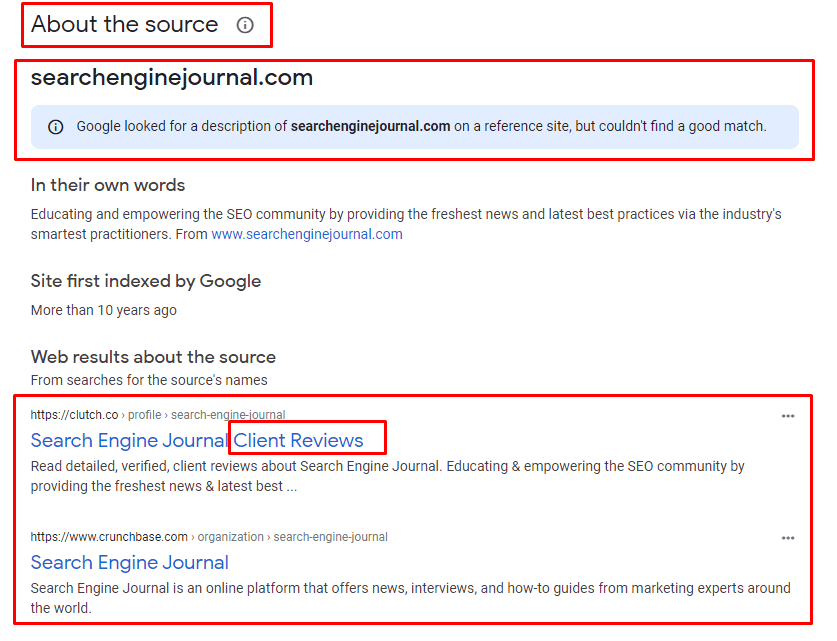
“For YMYL informational topics, the reputation of a website or content creator should be judged by what experts in the field have to say. Recommendations from expert sources, such as professional societies, are strong evidence of a very positive reputation.”
Google states that the reputation of a website or the content creator for the informational topics should come from the same level of experts. As shown below, Google Scholar is a good source for understanding certain experts.
For example, below, you can find Trystan Upstill, who I admire from the Google Company, to understand his overall expertise on a particular topic. His verification, research, coauthors, and their organizations. The citation amount per the study, and years of the research, are clear signals of Trystan's expertise.
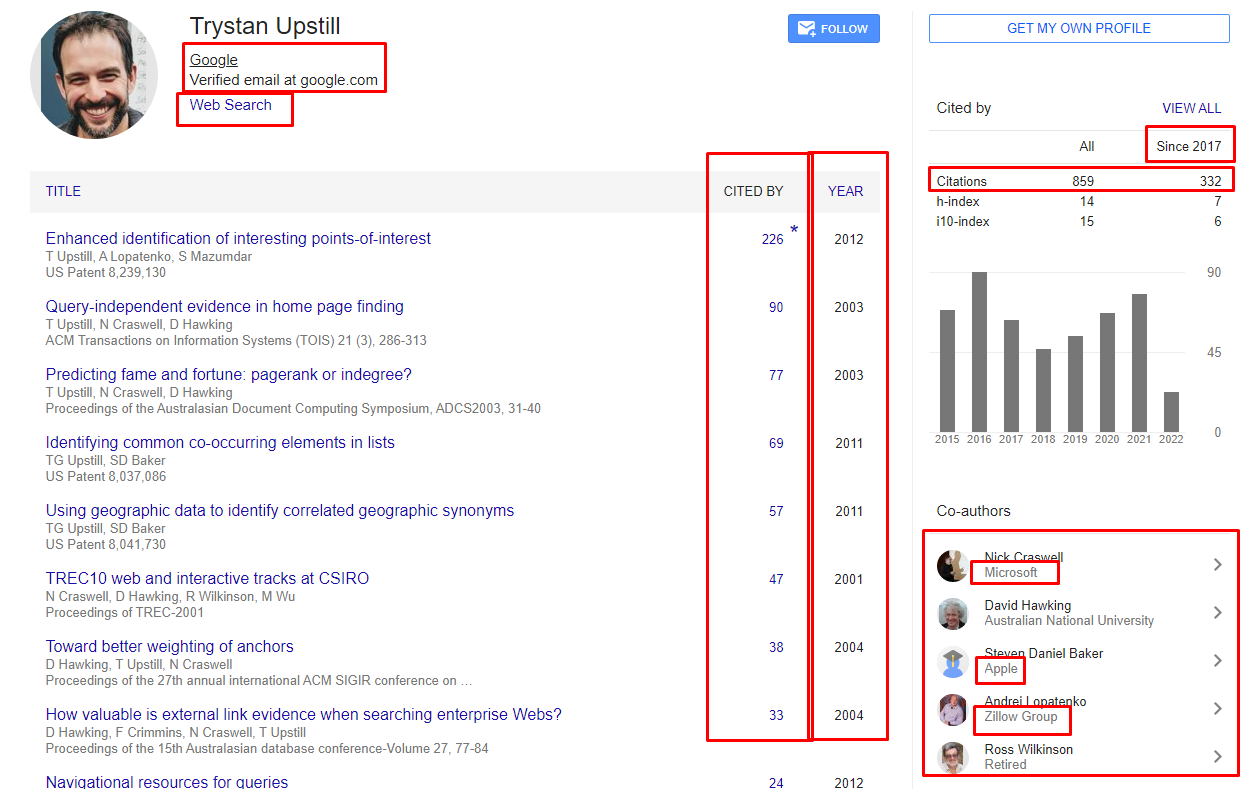


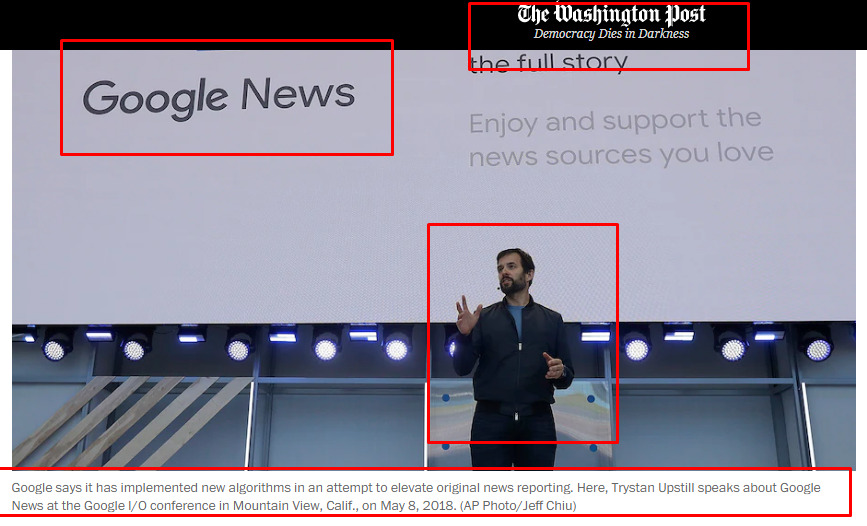
Since Google can read images with context, for example, “Imagen,” it is clear that Google sees the context of pictures, and here, Trystan, as an authority, presents his opinions to the audience of Google IO.
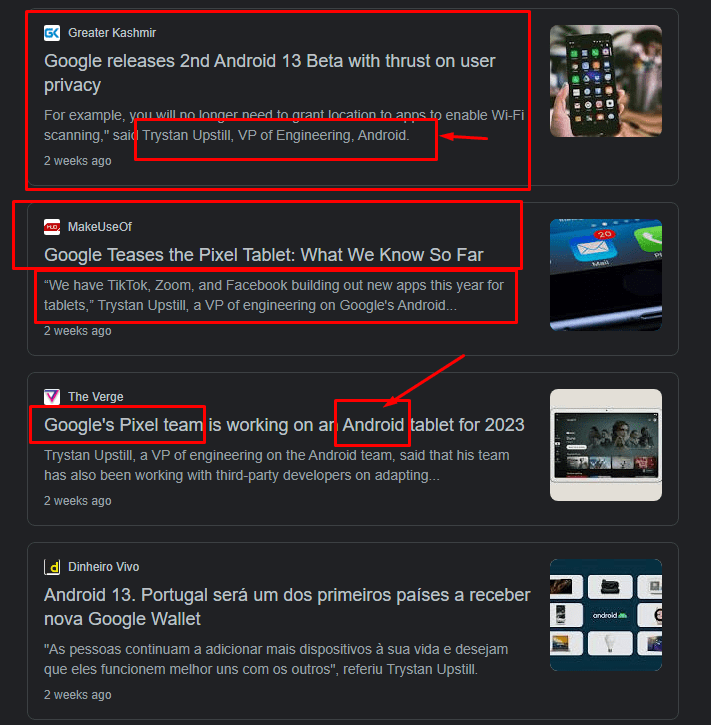
But not just the fresh news. Let’s check the entity’s lifecycle on the SERP.
Google search results from 2007 mention him as a Google engineer, and the topic is still related to Information Retrieval and Web technologies.




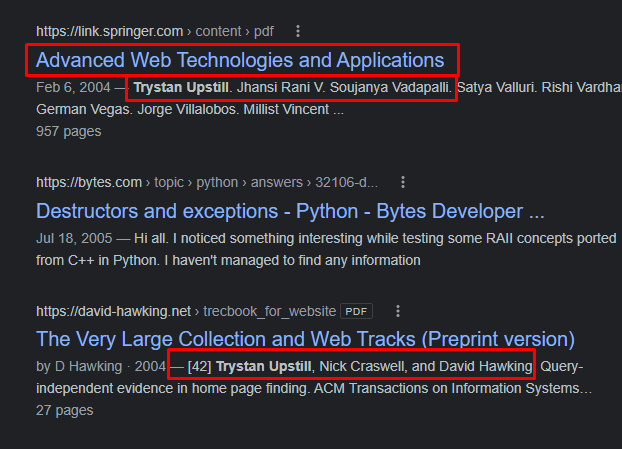
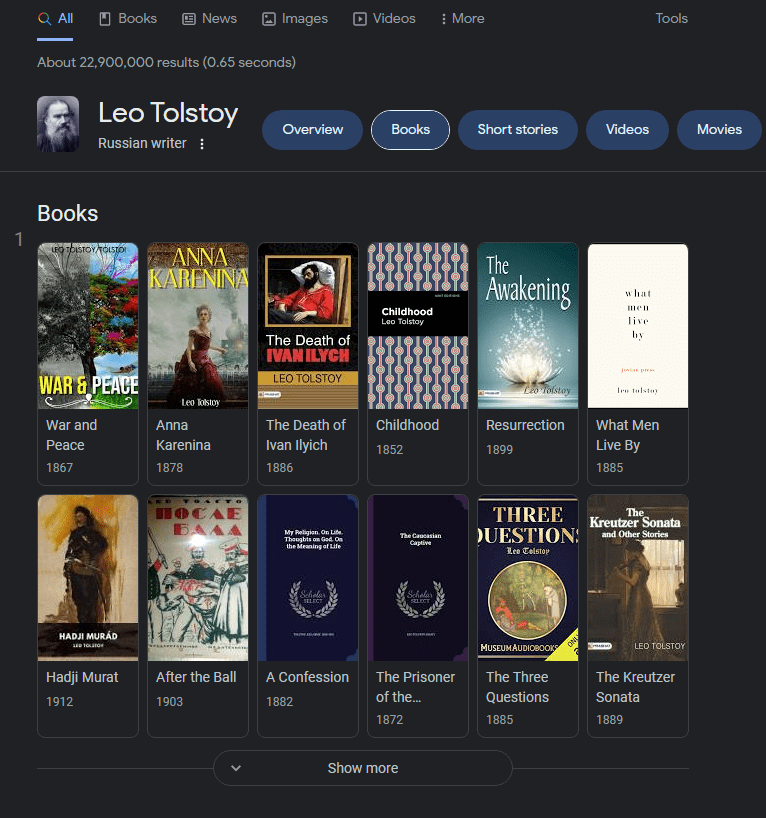
Can an Author Increase the Reputation of a Website?
In other words, to increase your authority or reputation, you can’t put the name of Albert Einstein into the author section. And, of course, this sample is even beyond stylometry.
Let me explain what stylometry is.
In this article, I used the word “thus” 3 times.
Used the word “also” 2 times.
The word “and” 17 times.
And some other authors use stop words much more than I do. Some others use present tense sentences more. Some use “can” instead of “be able to,” while others use numeric values, more, or certain types of word sequences. If there are enough samples, the author of the content can be understood correctly.
Do you want an example?
As a history reader, I am a big fan of Alexander Hamilton since he was one of the real founders of American National Economy basics as Alfred Thayer Mahan created the navy basics. And,12 pages of the American Constitution were a topic for a debate to understand who was the real author. James Madison claimed that, for these 12 pages, he was the real-author of these papers. But Alexander Hamilton gave his private notes to James Madison before dying in a duel.
Thus, Alexander Hamilton wasn’t there to say that “I was the real author of these stolen 12 pages” of the American Constitution. Luckily, 150 years later, we had stylometry with Python.
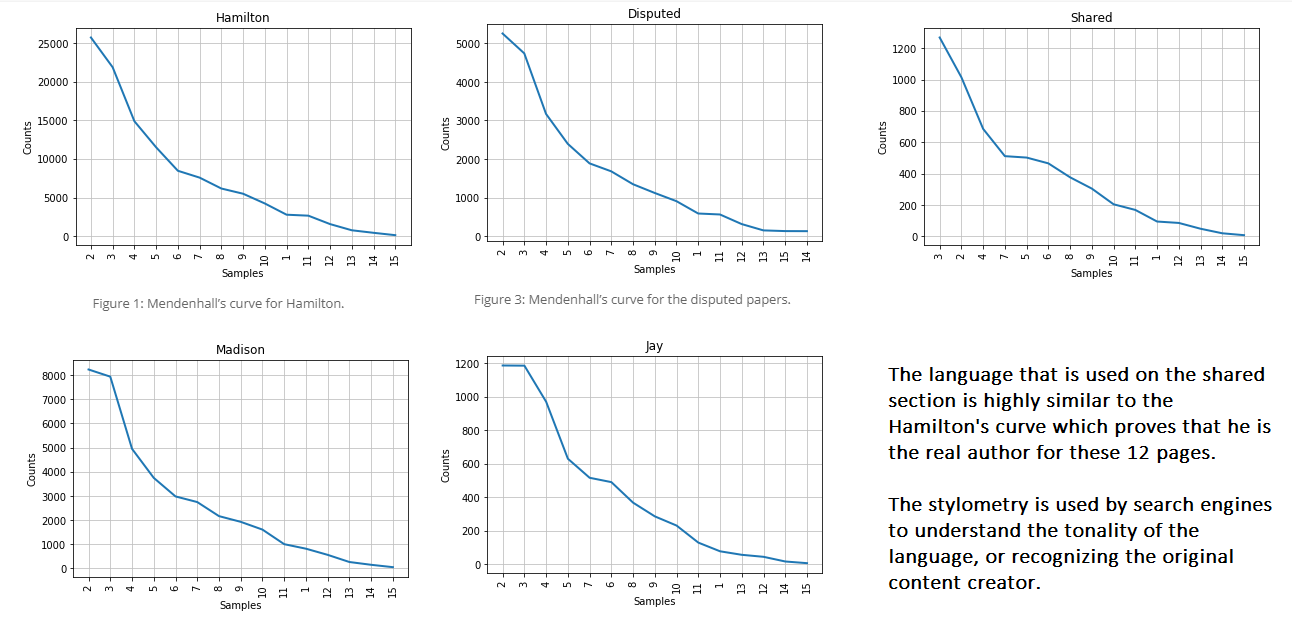
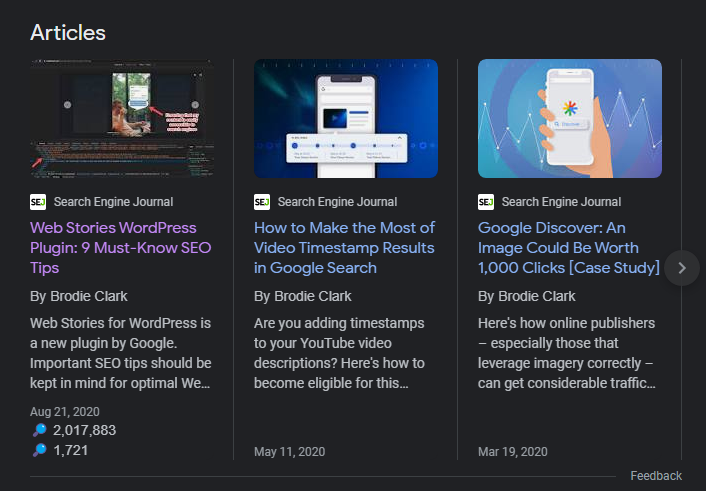
I also want to draw your attention to the fact that I have used the word “also” three more times until now. Since AI generates content with millions of words or sentences, a search engine can easily recognize which websites use which language models, and whether they are the same or not.
What is Expression Identity for Authors?
If you see that Jean-Christophe Grange starts to write as in a teenage magazine, you wouldn’t believe that the lines of text come from him. Imagine that someone imitates another person’s voice while speaking to you. You would feel it, right? The same happens in the stylometry and expression identity of the author entity.
An author’s expression identity represents the author’s talking, writing, and communication style. Thus, it is easy to understand who uses a “ghostwriter.” Even if PageRank and high Information Retrieval scores protect many sources simultaneously, Semantics and E-A-T are beyond these two fundamental search systems. Because PageRank can be balanced with Topical Authority, E-A-T is the strongest, heaviest, and a multi-layered indirect ranking signal. Thus, “just a blog” or “non-real author” are harmful qualifications for websites.
How Does Google Use Authors in SERP?
Google encourages searchers to seek out more expert authors in their field. In this video, Johannes Cronje explains in more detail how to find such experts through Google Scholar.
As well Google bears up authors to become a part of Google Books.
Encouraging authors over the years have had some counterparts on the SERP. Authorship started its journey on Google with Google Author Tag as a direct touch for authorship understanding.
Due to heavy spamming, the Google Author Tag is deprecated, but Google’s consistency for its patent filings didn’t end. And Google found other ways to propagate authorship for rankings as an authority.
The first design that talks about Author Authority from Google focuses on the social networks to explain that the social media platform’s user represents the user’s expertise. Othar Hansson, one of the creators of Google Plus and the Authorship idea, is also an inventor of this design too.
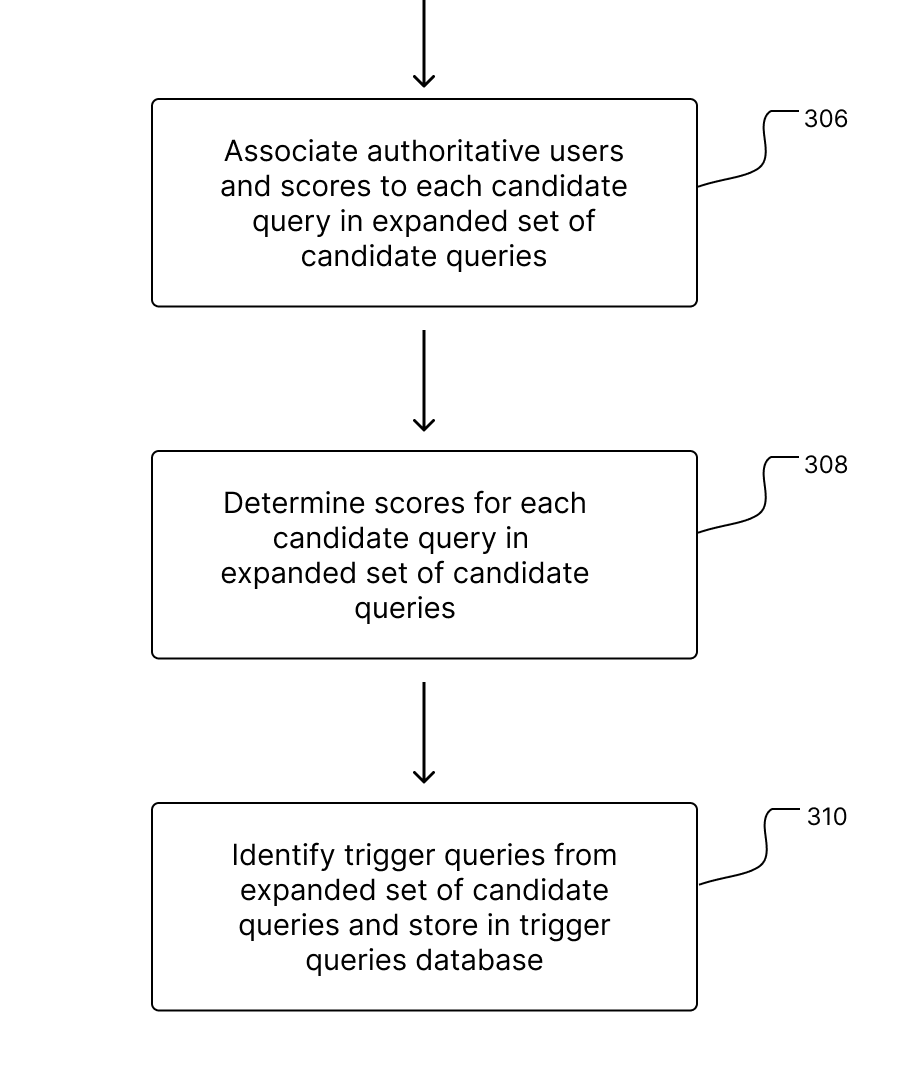
- Query (Q) data
- Authoritative user (AU) data and
- Score (S) data, determined from one or more social networking services. In some examples, a content creator is authoritative for one or more queries, with the score providing a relative measure of the authoritativeness of the user for a particular search.
Most importantly, this is a continuation patent. The first version is from 2014 and mentions the author tag. The second version is from 2015 and notes the “authoritative rank” rather than “author tag related authorship.
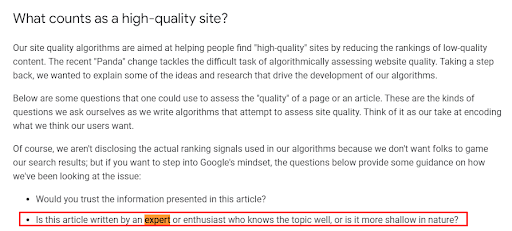
The same question appears 8 years later, from Danny Sullivan, as below.
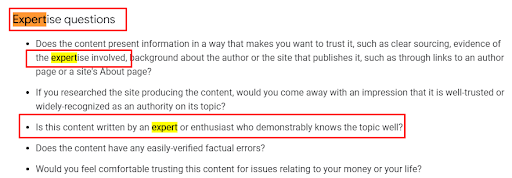
"You don't want to have fake Barack Obama. And so one of the things they're doing is it requires, down the road, if you allow across different domains - you can link to whitehouse.gov, but unless whitehouse.gov links back to you, then it hasn't been authenticated."
And, this is what John Mueller said 10 years later:
So my recommendation here would be to at least link to a common or central place where you say everything comes together for this author, which could be something like a social-network profile page, for example.
And use that across the different Author pages you have when you're writing so that when our systems look at an article and see an Author page associated with that, they can recognize that this is the same author as the person who wrote something else. And we can kind of group this by entity.
It's not a requirement to add author names, but it is a good practice. If you can't do it for all content, so be it. If you can't do it for any content, and it's all basically "trust us", then I don't know how users are supposed to deal with that.
— ???? johnmu.csv (personal) weighs more than 16MB ???? (@JohnMu) September 16, 2021
These changes happened in the PageRank toolbar and numeric PageRank value removal from SERP. Instead of giving numeric stats with different dimensions, Google started to use “closed” internal concepts and progress.
Garry Illyes stated that they would continue to use “rel=author” if more people would use it.

And these discussions of authorship didn’t end. Even Google had to defend its own “articles” against publishers. How? Let’s check.
Inspired by the observations done about Google referencing itself as "author" of the text of the Knowledge Panel of many geographical entities, my friend @giorgiotave did a simple experiment.
— Gianluca Fiorelli (@gfiorelli1) April 26, 2022
He searched the Italian regions, and dug into the content by "Google"... 1/
Google states that publishers steal content from them.
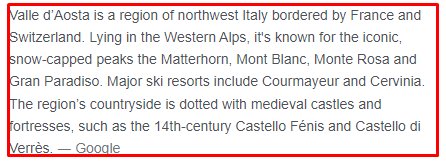
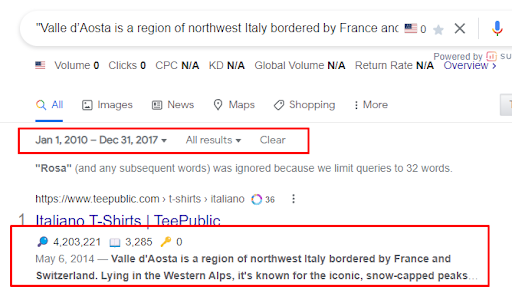
As well, there is one particular thing that authorship is not easy to resolve and prove. Thus, gaining trust and expertise on a topic doesn't happen in one day, so even the search engine must prove that its content belongs to itself.
And, sometimes epic reactions, as below, happen.
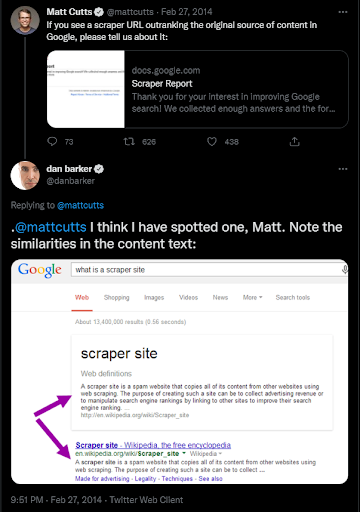
Conclusion
A further indication that Google didn't forget about its original goals is the most recent Google Knowledge Panel Designs for the Authors. Google's Authorship Reconciliation and Presenting are relevant to the Brand SERP and Knowledge Panel Optimization. Google always gives the most popular and prominent queries priority. Google prioritizes musicians, authors, playwrights, and actors since they are pertinent to many queries. Query-Entity-Phrase associations, "defining the queries," or extrapolating entity attributes from the questions because "author entities" are relevant to the particular query. And new "context vectors" with "author identity" can be created based on an author's related query count and the success of the articles the author has written for those queries.
Speed up your search marketing growth with Serpstat!
Keyword and backlink opportunities, competitors' online strategy, daily rankings and SEO-related issues.
A pack of tools for reducing your time on SEO tasks.
Discover More SEO Tools
Backlink Cheсker
Backlinks checking for any site. Increase the power of your backlink profile
API for SEO
Search big data and get results using SEO API
Competitor Website Analytics
Complete analysis of competitors' websites for SEO and PPC
Keyword Rank Checker
Google Keyword Rankings Checker - gain valuable insights into your website's search engine rankings
Recommended posts
Cases, life hacks, researches, and useful articles
Don’t you have time to follow the news? No worries! Our editor will choose articles that will definitely help you with your work. Join our cozy community :)
By clicking the button, you agree to our privacy policy.

